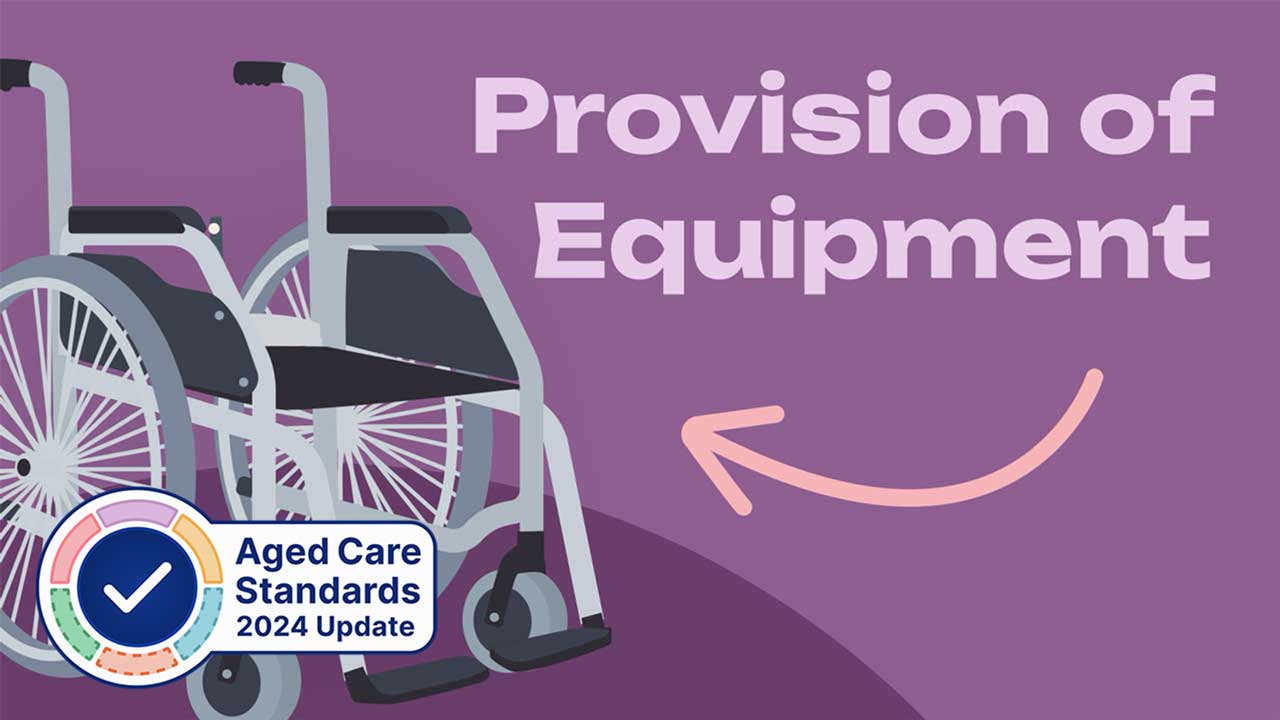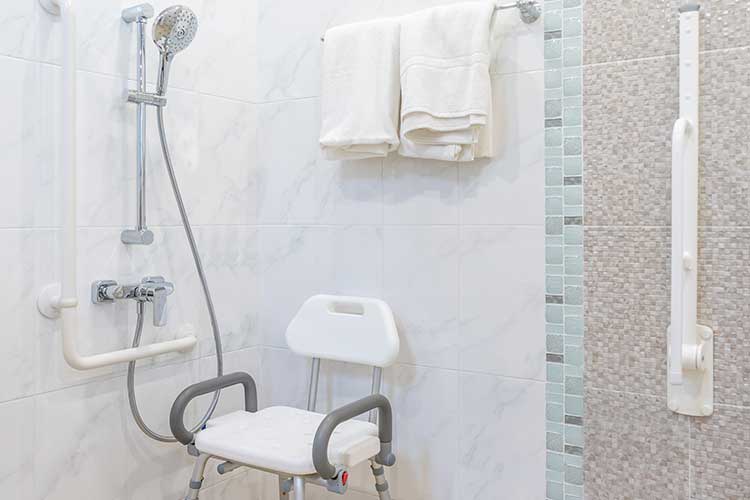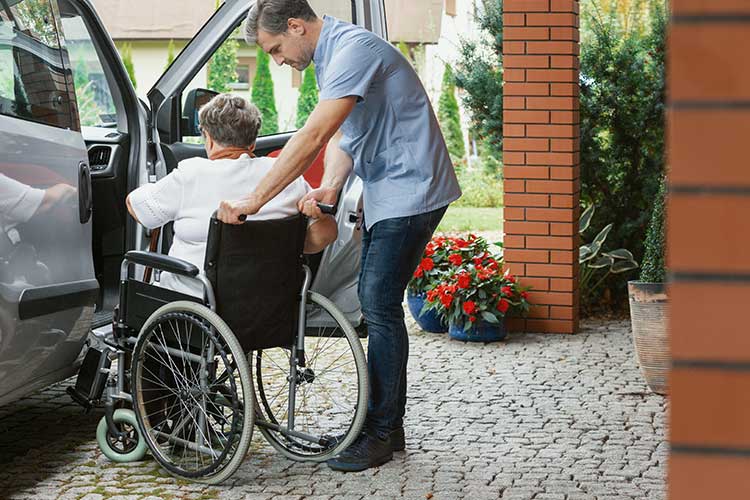Provision of Equipment by Aged Care Organisations
Published: 14 May 2024

Published: 14 May 2024

In some cases, aged care organisations might supply their care recipients with equipment and aids to use outside of the service environment, for example, within the older person’s own home if they are receiving a Home Care Package (ACQSC 2023).
Any equipment or aids provided by the organisation must be fit for purpose; that is, safe, suitable, clean and well-maintained (ACQSC 2023).
For example, if providing a handrail for an older person, the organisation would be responsible for choosing a high-quality, sturdy handrail and ensuring it’s installed correctly (CDCS 2019).
Any third-party services subcontracted by the organisation must also use equipment and aids that are deemed fit for purpose. It’s the organisation’s responsibility to ensure that subcontracted services are using appropriate equipment and aids (ACQSC 2023).
Furthermore, the organisation is also responsible for assessing any equipment or aids owned by the care recipient themself that are required in the delivery of supports and services. For example, if a staff member notices a crack in an older person’s shower chair, they would need to raise this concern (ACQSC 2023; CDCS 2019).
Standard 4: The Environment - Outcome 4.1a: Environment and equipment at home under the strengthened Aged Care Quality Standards (Action 4.1.2a) requires that equipment and aids provided to older people are safe, clean, well-maintained and appropriate for their needs (ACQSC 2024a).
Additionally, Standard 5: Clinical Care - Outcome 5.4: Comprehensive care (Action 5.4.2) expects that aged care providers identify and provide any equipment, aids, devices and products required by an older person as part of comprehensive clinical assessments (ACQSC 2024b).

Each older person has their own equipment needs and preferences based on their:
(ACQSC 2023)
The term ‘equipment’ is broad, comprising:
(ACQSC 2023)
Examples include:
(My Aged Care 2021; Better Health Channel 2023)

In order to ensure equipment and aids are safe, suitable, clean and well-maintained, organisations should:
(ACQSC 2023)
Question 1 of 3
If a staff member notices a crack in an older person’s shower chair, what is their responsibility?